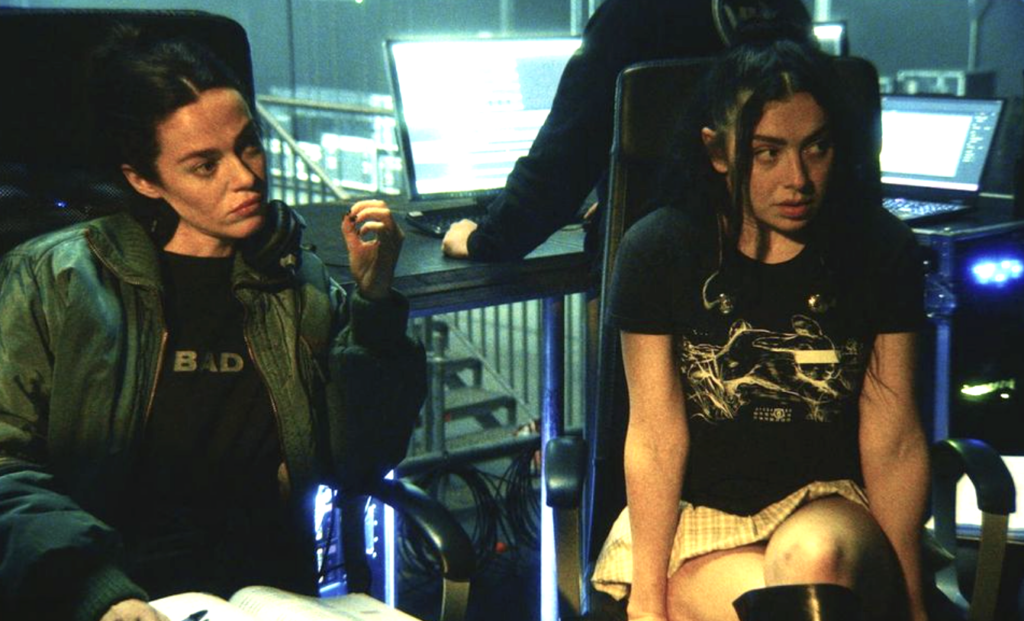Rules of Engagement
When two films share a title, it’s no guarantee they will have anything to do with each other topically. (Could Mask and The Mask be any different?) So it’s assured that the new Hollywood flick The Rules of Engagement suffers little threat of “confusion in the marketplace” with the excellent 1997 Oscar-nominated documentary Waco: The Rules of Engagement. Though the films have few things in common — one movie is an eye-opening reality-driven investigation of U.S. government atrocities; the other is a formulaic but compelling action/trial film with big stars — they do share one concept reflected by their titles. At their foundation, they examine the gray area concerning military rules of engagement. Specifically, when does a superior force have the right to attack an inferior force in combat?
Following a flashback sequence in Vietnam, Rules of Engagement begins as Col. Terry Childers (Samuel L. Jackson) is throwing a retirement party for his best friend, Col. Hays Hodges (Tommy Lee Jones), a military lawyer and Vietnam War comrade. “No more wars to fight. No more trials to lose,” Hodges tells him relievedly. Though Hodges is a recovering alcoholic with somewhat mediocre courtroom skills, he, like Childers, lives and dies by the corp’s Semper Fi-ed creed.
When Childers is sent to the southwestern Asian country of Yemen with a squad of Marines to help the U.S. ambassador and his family escape from a threatening mob of anti-American demonstrators, the situation escalates to bloodshed. The end results are dead or wounded Marines and slain Yemeni citizens who may or may not have been armed.
Childers faces a court martial for giving orders that military prosecutors say violated the rules of engagement. He, of course, asks his buddy Hodges to be his defense attorney. “I’m a good enough lawyer to know you need a better lawyer than me,” Hodges tells him, though he agrees to the request.
Whereas a TV version of the same material might flounder, this slick, big-budget film works because there is legitimate doubt as to both the level of guilt of the accused and the outcome of the trial. Since the audience views the embassy experience along with Childers, it’s tempting for the filmmakers to make it clear that he is the standard “noble, framed guy.” However, the colonel’s actions in Yemen can be construed as heroic or hostile, skillful or careless. That’s a real problem for him, since the military thinks only in terms of black and white, not gray.
Renowned director William Friedkin (The Exorcist), who hasn’t made a feature film since the critically reviled Jade in 1995, proves he still knows how to juggle action and characters. His entire embassy-assault sequence in particular is a lesson in high-tension filmmaking (arguably his best since the subway platform chase in The French Connection). This powder-keg scenario is intricately shot and edited, making the viewer feel a part of the utter chaos into which the soldiers are thrust.
Friedkin’s Vietnam flashbacks are not quite as successful, coming across as shopworn and uninspiring. Though the jungle skirmishes are used to set up all the later events of the film, they contain one key element that seeks to derail the integrity of the trial. How could the prosecution locate its mystery witness? A minimal bit of scrutiny proves this plot twist to be preposterous.
Although the trial is engrossing (despite the fact that the prosecutor, played by Guy Pearce, seems to be channeling the spirit of Al Pacino) it’s hard to label the film a “courtroom thriller.” The trial doesn’t even get going until an hour and 15 minutes into the story, and by that point Friedkin has blown his best scenes. Also, making Hodges a recovering alcoholic adds nothing to the plot. Whether rendered as drunk or sober, this lawyer is going to be perceived as a surly bastard.
But Friedkin uses his A-list cast (which includes Philip Baker Hall, Bruce Greenwood, Anne Archer, and Ben Kingsley) to perfection. Coupling the outstanding embassy rescue centerpiece and the moral ambivalence of the main conceit, Friedkin crafts an entertaining crowd-pleaser whose only rule is to be thoroughly “engaging.” (R) Rating: 7




